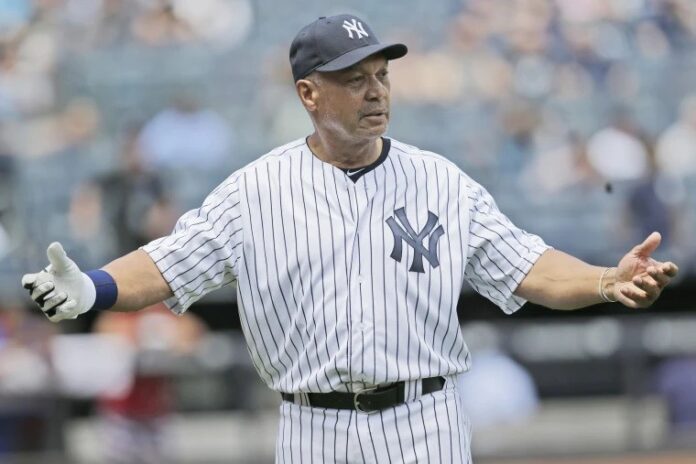Yankee great Reggie Jackson has always come across as angry in the baseball world. Now we know why.
In a real, stunning, and powerful moment on live TV, Reggie revealed the level of racism he encountered in the 60s when he played in Alabama for the team that became the Oakland Athletics.
The occasion on Tuesday night was the first ever Major League Baseball game played at Rickwood Field, home of the Negro League’s Birmingham Black Barons decades ago. It’s also where the late Willie Mays got his start in baseball.
Jackson played there in 1967 when the Oakland A’s were the Birmingham A’s. He surprised Alex Rodriguez with his answer about what it felt like returning to the ballpark and the city.
Watch this and pay attention. He’s talking about 1967. The same year the Beatles released “Sgt Pepper,” for example. This is not in some mysterious past. This week in 2024, ABC’s “General Hospital” had to post a defense of one of its young Black actresses who’s been receiving hate mail. Social media has made it possible for this all to go public.
Reggie’s recollections are no different than the great Motown and R&B stars of the 60s. Smokey Robinson recently talked about similar stories on his Sirius XM Radio show. It was dangerous for our now beloved singers to perform in the South. This is why “Green Book” was such an important movie.
A stunning moment on television:
“Coming back here is not easy. The racism that I (faced) here when I played here, the difficulty of going through different places that we traveled … fortunately I had a manager and I had players on the team that helped me get through it. But I wouldn’t wish it on anybody.”
“People said to me today and I spoke on it ‘Do you think you’re a better person, do you think you won, when you played here…’ And I said, you know, I would never want to do it again. I walked into restaurants and they would point at me and say ‘The n*gger can’t eat here.’ I would go to a hotel and they would say ‘The n*gger can’t stay here.’ We want to Charlie Finley’s country club for a welcome home dinner, and they pointed me out with the N-word, ‘he can’t come in here.’ Finley marched the whole team out. Finally they let me in. He had said ‘We’re gonna go to a diner, and eat hamburgers, we’ll go where we’re wanted.’”
“Fortunately, I had a manager, Johnny McNamara, that if I couldn’t eat in a place, nobody could eat. We’d get food to travel. If I couldn’t stay in a hotel, they’d drive to the next hotel and find a place where I can stay. If it had not been for Rollie Fingers, Johnny McNamara, Dave Duncan, Joe and Sharon Rudy, I slept on their couch three, four nights a week for about a month and a half. Finally, they were threatened that they would burn our apartment complex down unless I got out.”
“I wouldn’t wish it on anybody.’
“… In 1963, the Klan murdered four black girls, children … 11, 12, 14 years old at a church here and never got indicted. They were from the Klan. Life Magazine did a story on them like they were being honored. I wouldn’t wish it on anyone.”
“At the same time, had it not been for my white friends, had it not been for my white manager, and for Rudy, Fingers, and Duncan, and Lee Meyers, I wouldn’t have never made it. I was too physically violent. I was ready to physically fight someone. I would’ve gotten killed here, because I would have beat someone’s ass and (then) you would’ve saw me in an Oak tree somewhere.”
Alex Rodriguez asked a question. Reggie Jackson answered it.
(Shouts to the producer and rest of the desk for staying out of Reggie’s way and just letting him talk. I doubt they expected this answer. But it’s a great few minutes of television.)pic.twitter.com/7WqjlppvF8
— Gary Parrish (@GaryParrishCBS) June 21, 2024

